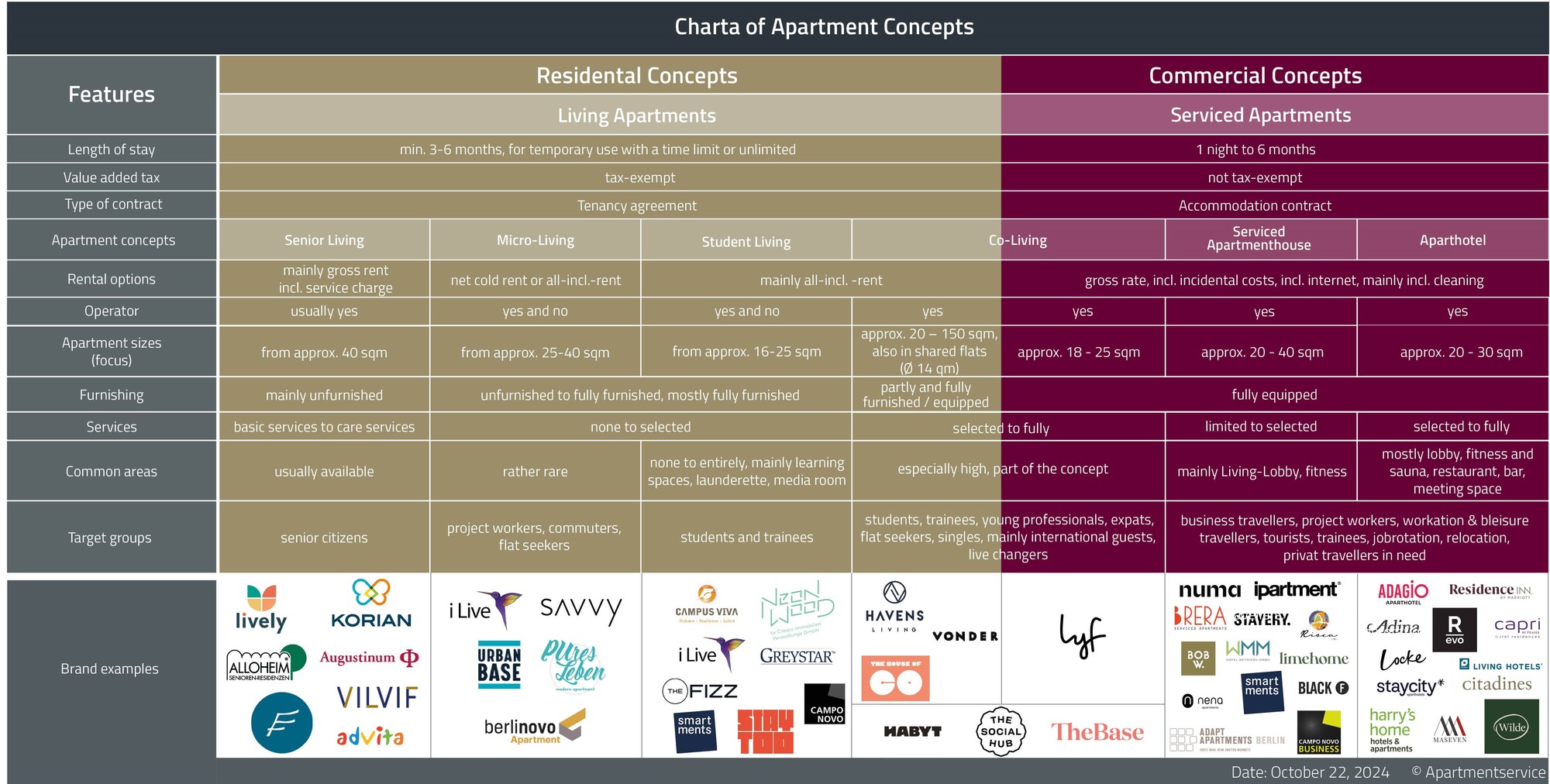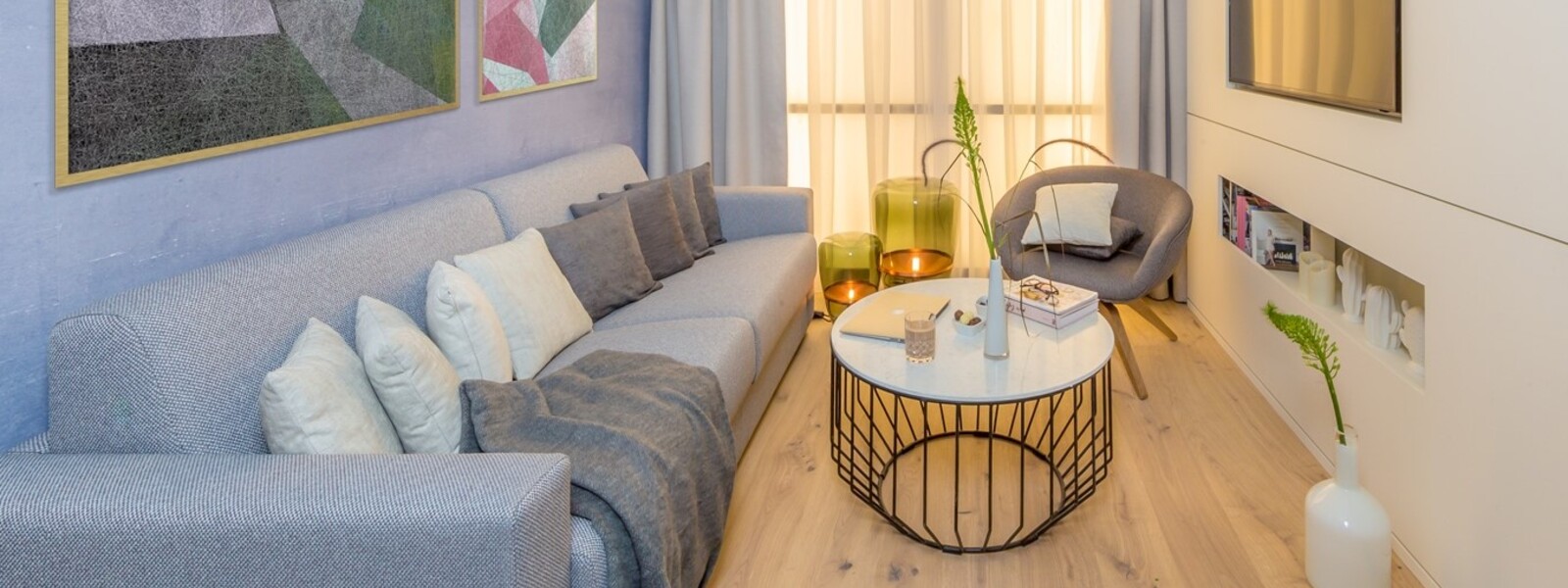Serviced apartment, apartment hotel, aparthotel, serviced residence, temporary living. Many terms are used to describe the serviced flat segment. The terms are not used consistently. This not only makes orientation difficult for guests, but also makes the segment difficult to grasp for banks, investors and building and planning authorities. In order to counteract this historically grown diversity of terms, a working group consisting of important representatives of the industry was formed in 2014 on the initiative of Apartmentservice.
The aim of this group was to define uniform standards for the rapidly growing and increasingly differentiated segment of apartment concepts and thus put an end to the inconsistent use of terms in this segment. In the 2020 version, the classification was called the 'Charter of Temporary Living' - but this terminology created misunderstandings and repeatedly and erroneously placed serviced apartments in the ‘residential drawer’. The distinction from the traditional housing market was not clear enough.
In times of tight housing markets, with sometimes very emotional debates, the previous Charter could no longer adequately represent the current diversity of concepts for assessment under building law. This also meant that the Charter's main objective of helping to ensure that serviced apartments are conceptually included in building regulations was relegated to the background.
A working group made up of operators, investors, bankers, architects, tax consultants and lawyers has recently been working intensively on a new version. The "Charter of Apartment Concepts" now aims to remove the previous large bracket of temporary living and to clearly separate the serviced flat segment from the "residential pigeonhole" in terms of building law. The concept of the sandwich position between hotel and residential will also be abandoned due to its ambiguity.
Serviced Apartments is the generic term for commercial units in the form of serviced apartment buildings, aparthotels or co-living.
Serviced apartments are furnished units that always have cooking facilities. The units are designed for longer stays. They are associated with typical hotel services, although the level of service varies according to the concept.
- Aparthotels usually offer a 24/7 reception service as well as other typical hotel services and areas such as gastronomy, conference, fitness and wellness.
- Serviced apartment buildings offer a limited range of services compared to aparthotels. The self-catering of the guests is in the foreground.
- Co-living as a commercial offer (also available as a residential offer) are fully equipped and offer selected to complete services
Living apartments is the generic term for more or less furnished residential products. They are offered as co-living, student living, micro-living and senior living.
The new version of the Charter has already been formally accepted by some players in the segment, i.e. they understand the apartment concept segment with its respective definitions and characteristics in terms of the new Charter and promote it for further growth. The 'Apartment Concepts Charter' is endorsed by:




